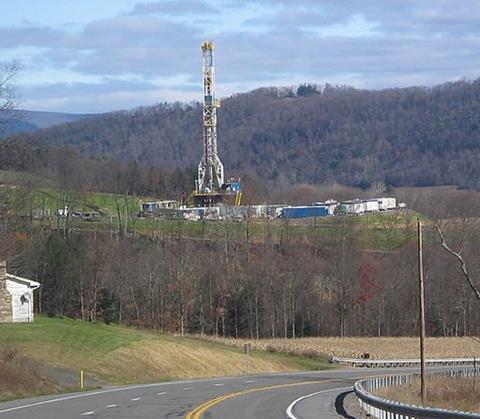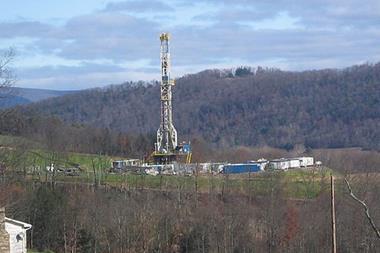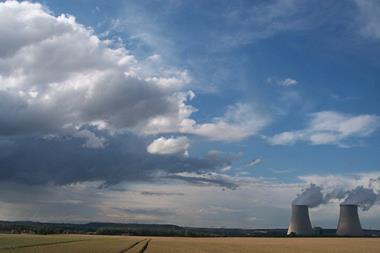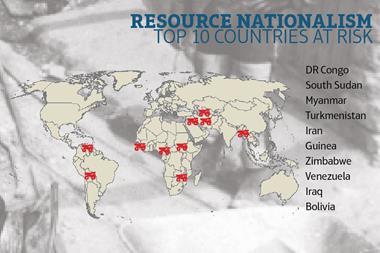‘Frackers’ were delighted on Tuesday after a report compiled by the Department for Energy and Climate Change (DECC) advised that hydraulic fracturing should resume in the UK

Hydraulic fracturing, also known as fracking, is a process which is used to increase the rate at which natural gas is extracted from subterranean gas-rich shale reservoirs. A well is drilled hundreds of meters deep and then pumped full of a mixture of water, sand and chemicals in order to release methane gas.
The DECC’s report was commissioned following the occurrence of two earthquakes in Lancashire in 2011 – measuring 2.3 and 1.5 on the Richter scale – along a fault line close to where UK energy company Craudrilla Resources were fracking for shale gas at Presse Hill. Whilst attributing the minor tremors to Craudrilla’s operations, the report said fracking could resume in the UK, albeit with stronger controls.
Interestingly, the report was released on the same day that insurance brokerage Willis released its 2012 Energy Market Review in which it asserted that fracking is fast developing into an industry which the insurance market is happy to underwrite. The report made it clear that Willis believes fracking is “an industry that is here to stay” and that shale gas should be welcomed across the globe as an alternative source of cheap energy.
The shale gas industry has repeatedly received criticism from environmental and conservation groups across the US and here in the UK in recent years. However, the report from Willis concentrated upon the alleged risks posed by fracking – from local groundwater and soil contamination to earthquakes – and concluded that these can be substantially mitigated by companies’ adherence to “industry best practice”.
The US has undoubtedly been at the forefront of shale gas extraction in recent years. The fuel accounts for 20% of total US natural gas production in 2012 – up from a mere 1% in 2001 (Source: US Energy Information Administration), reliance on imports is down as a result, and US gas prices are now the lowest they have been in the last 10 years. If shale gas operations in the US are anything to go by then, it would appear that cheaper gas is only just around the corner for us here in Europe. The only thing is; they’re not.
On 21 September 2011 Cuadrilla announced that an estimated 200 trillion cubic feet of shale gas is in place within the licence area they have been exploring in Lancashire. Yet whilst energy companies may be optimistic, scientists aren’t. A report published that same year by the Department for Energy and Climate Change placed estimates for shale reserves here in the UK at some 40 times less than those estimated by Craudrilla, in an area 15 times the size of that licensed to Craudrilla.
A special report published by Deutche Bank in October last year, entitled A first look as EU shale gas prospects, warned “those waiting for a shale gas ‘revolution’ outside the US will likely be disappointed, in terms of both price and the speed at which high-volume production can be achieved”.
Aside from the uncertainty surrounding the size of recoverable resources in Europe, Deutche Bank pointed out that environmental impact coupled with the issue of population density will play a major factor in how far shale gas production can take effect in Europe. Due to the very nature of the process, it is common, and in many instances necessary to have multiple wells at a given location in order to enhance the rate of extraction. The report points out that whilst this may not necessarily be much of a problem in the US, which has a population density of 34 people per square kilometre, here in the UK, where that figure is raised to 259 people per square kilometre, that might be rather different.
Whilst ‘frackers’ may stress that they adhere to, or even go above and beyond “industry best practice”, there is no denying that “the impact to the landscape and quality of life of drilling operations will likely be felt more acutely [in Europe, something which] may make it difficult and time-consuming to acquire local planning permission”.
And still we have yet to confront the real elephant in the room; like it or not, shale gas is just one other in a long list of hydrocarbon fuels. It is just as finite as the rest, and eventually it will run out.
With money that could be better spent on long-term renewable energy now being ploughed into the fracking industry, it appears that many are still in denial as to mankind’s unbridled dependence upon fossil fuels. One thing that is for certain is that shale gas won’t change European energy forever; simply because it won’t last that long.




















No comments yet